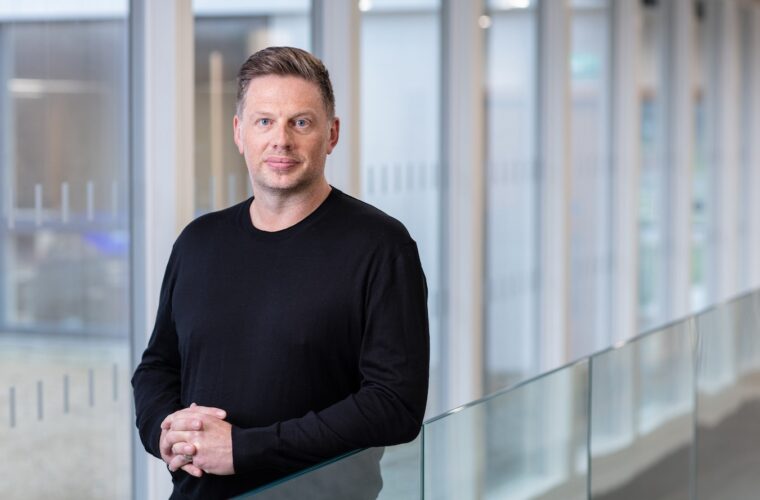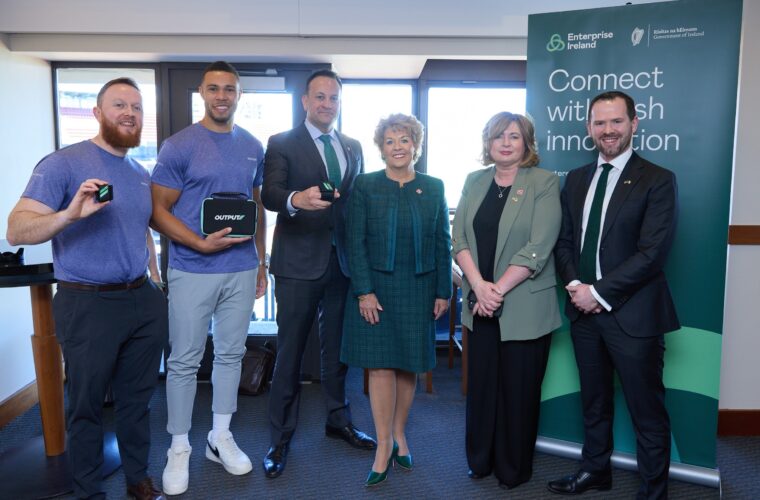Ireland maybe small in size but it is huge on heart when it comes to technology with a growing tech start-up ecosystem and exciting innovators keeping the flag flying on a global scale.
NovaUCD in Dublin’s southside has been a strong beat in the heart of the Irish tech eco-system since 2003 and has supported over 400 companies to date.
The purpose-built incubation facility for early-stage start-ups recently underwent development which allows more of Ireland’s top talent to flourish under the same roof as their likeminded peers.
The €6.5+ million development project to develop and extend NovaUCD’s East Courtyard which commenced in the summer of 2018 resulted in 800m2 of additional licensable space and has enabled UCD to significantly increase its capacity to house start-up companies on campus by over 50%.
Housed in one of the University of Dublin’s historic Georgian buildings NovaUCD was originally funded through a unique public-private partnership involving; AIB Bank, Arthur Cox, Deloitte, Enterprise Ireland, Ericsson, Goodbody Stockbrokers, UCD and Xilinx. NovaUCD is also supported by Enterprise Ireland through the Technology Transfer Strengthening Initiative, managed by Knowledge Transfer Ireland.

Credit: Nick Bradshaw, Fotonic
““The companies that join NovaUCD are part of our community of entrepreneurs, so they benefit from interaction with our community of likeminded entrepreneurs, who some of whom are very experienced,” says Miceal Whelan, Communications and Media Relations Manager at NovaUCD. “Plus, we have an excellent infrastructure, and facilities, and a range of support programs to nurture a community of talent.”
The facilities include offices, labs, co-working spaces, seminar and meeting rooms, boardroom and café. They have a range of comprehensive support programmes which are tailored to the community based on their particular needs.
““We have very strong links within the Irish and international venture capital community,” he continues “We run a number of events, seminars and programs for our companies, many of which are determined by the founders themselves. We survey them to see what they would like the content of programs to focus on and then we arrange materials to suit what they want.”
“Companies normally stay with us for about four years,” he says. “We’re there to support early stage start-ups and when they reach four years old, or there abouts, they graduate from the facility, but they’re still part of our community.”
For those who graduate out of NovaUCD they are still granted access to the building and can use facilities such as the boardroom and can attend the many events throughout the year. “They’re still part of our community and our network,” adds Whelan.
Many of the companies in NovaUCD are spun out of research in the university, there is also a student programme which supports student start-ups.
The NovaUCD Student Enterprise Competition, which is now in its seventh year, provides a framework to support UCD undergraduate and postgraduate students who want to work together to develop and grow start-up companies.
The competition assists students to refine their start-up ideas through a series of structured workshops, including taught content from industry experts, interactive workshops, regular pitching sessions and mentoring. Topics such as, customer development; value proposition; working in teams; design thinking; prototyping, environment mapping; financial planning and effective fundraising and pitching, are covered.

The programme has been adapted for online during the pandemic and ten teams are chosen to take part in the four-week time online mentoring programme which will take place in May/Jun culminating in a final pitching event will in mid-June where the overall winner will be announced.
To date over 40 early-stage ventures and over 100 students have completed the NovaUCD Student Enterprise Competition.
One of the previous courses participants was Zipp Mobility, “probably the most successful start-up to date to emerge from the NovaUCD Student Enterprise Competition,” says Whelan.
Zipp Mobility is an Irish micro mobility operator, which is also now headquartered at NovaUCD. It was established in 2019 by Charlie Gleeson while he was completing his undergraduate studies in the UCD Lochlann Quinn School of Business.
Since inception Zipp Mobility has secured €1.1 million in seed funding, launched e-scooter operations in three UK locations, grown their team from 1 to 20 people across Ireland and the UK and have over 40,000 customer e-scooter journeys under their belt – which replaced around 12,000 car journeys removing approximately 7 tonnes of carbon from the atmosphere.
Their e-scooter services are ready to launch in Ireland once new legislation is passed by the Irish Government legalising the road use of the alternative mode of transport.

Another start-up based out of NovaUCD, and reaching new heights, is Manna, a drone delivery company founded by serial entrepreneur Bobby Healy. With offices in NovaUCD and Wales it’s the world’s first aviation-grade B2B drone delivery ‘as-a-service’ company.
Due to test a delivery service on campus last year the pandemic foiled their plans. They didn’t stay grounded for long and have been using Oranmore in Co Galway as a test bed for their drone delivery. In partnership with the town’s Tesco supermarket the trial involves the delivery of goods such as food and pharmaceuticals to the local community within a three-minute window. Manna have also recently announced a partnership with Samsung to drone deliver new devices purchased by customers in the Oranmore area.
The UCD VentureLaunch Accelerator Programme is the university’s annual accelerator programme, run by NovaUCD, to support the creation and launch of sustainable and profitable new ventures emerging from UCD with between five and seven new ventures participating each year.
The programme is delivered via workshops over a 2-month period from October to November each year. It equips UCD researchers with the knowledge, skills and understanding that will be required to work as part of a team leading a new commercial venture. New ventures come out the other side with a commercially viable business plan.
As well as all the course content participants receive valuable access to the VentureLaunch Programme Board which is made up of individuals from the entrepreneurial and investment community providing advice and guidance to new venture projects at key intervals throughout the duration of the programme.
The overall winners of the accelerator gain a cash prize of €10,000, a professional services package to the value of €10,000 and incubation space at NovaUCD to the value of €12,000.
NovaUCD is also responsible for supporting the wider UCD entrepreneurial ecosystem of companies, which includes those based at NexusUCD, the university’s Industry Partnership Centre; spin-out companies based on and off campus; and spin-in companies based elsewhere on the university campus. This entrepreneurial ecosystem equates to a community of approximately 60 start-ups and established companies which are located on the campus at any one time.
NexusUCD provides high-quality modern office space, with short, medium or long term occupancy arrangements, and associated services to established innovation-led companies who are collaborating, or wish to collaborate, with UCD’s world-class research base.
With facilities like NovaUCD and NexusUCD available to nurture and scale up the bright ideas of Irish tech entrepreneurs the little island on the west of Europe is a hotbed for tech start-ups ready to make waves around the world.
“The type of companies that we’re looking for are high tech companies,” adds Whelan. “Companies which have global potential.”



